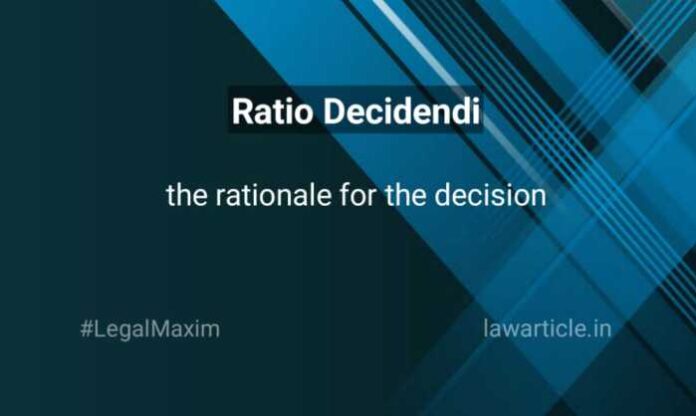RATIO DECIDENDI
LITERAL MEANING
The rationale for the decision / the reason
ORIGIN
Latin
EXPLANATION
The maxim refers to the principle of law on which the court decides the matter. In general, ratio decidendi is the statement of law applied to the material facts. It is that point in a case which determines the judgment or the principle on which the case establishes.
Unlike obiter dicta (by the way), the ratio decidendi as a general rule is binding on courts of lower and in the latter jurisdiction. The process of determining the ratio decidendi is based on what the court decided on the legal points on which the parties in the case fought. All other statements about the law in the text of a court opinion, all pronouncements that do not form a part of the court’s rulings on the issues decided in that particular case are obiter dicta and are not binding.
The difference between ratio decidendi and obiter dicta lie in the fact that, while the ratio is binding in its facts, obiter dicta refer to persuasive statements only including the statements a lawyer tells the judge in the case to convince them of his client’s innocence.
CASE LAWS
State of Haryana vs. Ranbir Alias Rana
The Supreme Court held that “An obiter dictum as distinguished from ratio decidendi is an observation of the court on a legal question suggested in a case before it but not arising in such manner as to require a decision. Obiter dicta are more or less presumably unnecessary to the decision. It may be an expression of a viewpoint or sentiments which has no binding effect. It is also well settled that the statements which are not part of the ratio decidendi constitute Obiter Dicta and are not authoritative.”
Also Read: Conditions for the issue of Writ of Mandamus ; Animus Nocendi




